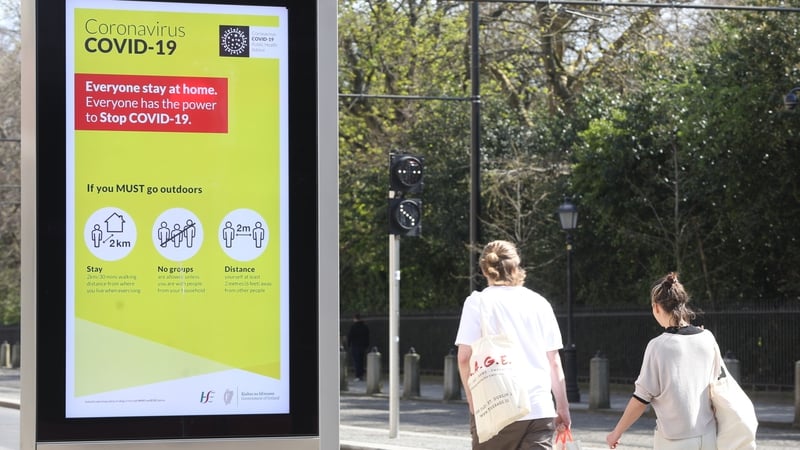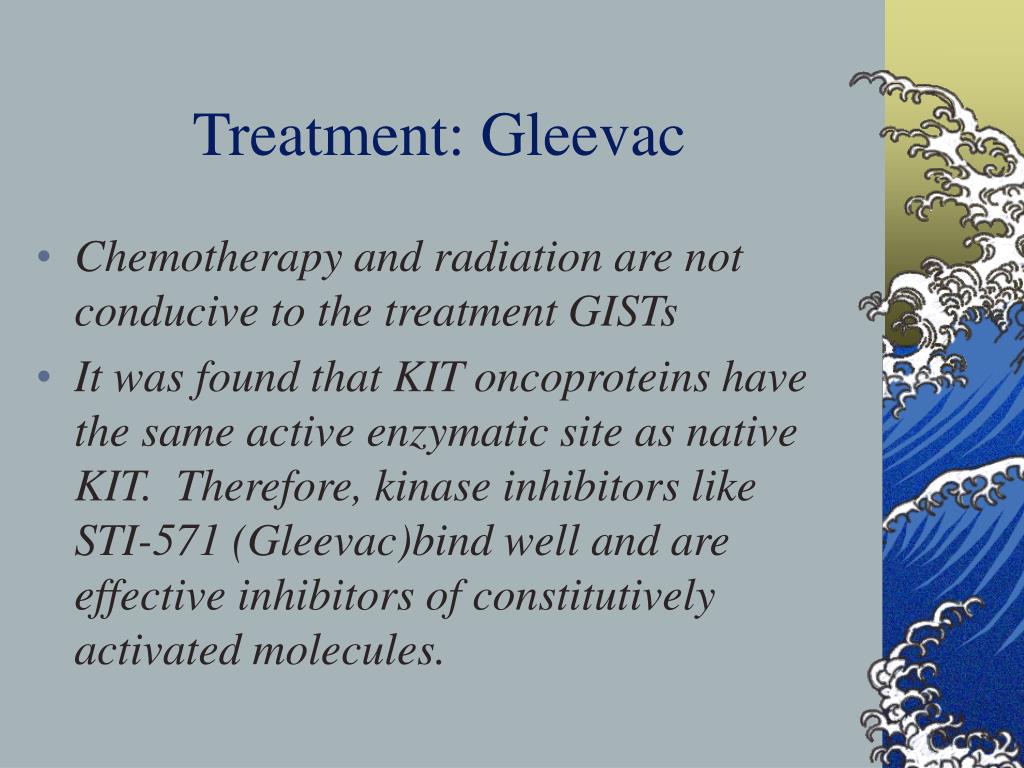
Are there any patient assistance programs for Gleevec?
Patient Assistance Programs for Gleevec. Patient assistance programs (PAPs) are usually sponsored by pharmaceutical companies and provide free or discounted medicines to low income or uninsured and under-insured people who meet specific guidelines.
What is the generic version of Gleevec?
GLEEVEC ® (imatinib mesylate) is available only by prescription. GLEEVEC tablets are indicated for: Newly diagnosed adult and pediatric patients with Philadelphia chromosome-positive chronic myeloid leukemia (Ph+ CML) in the chronic phase. Patients with Ph+ CML in blast crisis (BC), ...
Can I take Gleevec ® (imatinib mesylate) If I am pregnant?
Harm to the unborn child can occur when administered to a pregnant woman. Therefore, women should not become pregnant and should be advis ... See More GLEEVEC ® (imatinib mesylate) is available only by prescription. Patients with Ph+ CML in blast crisis (BC ... See More

What is the income requirements for Novartis patient assistance?
To be eligible for NPAF assistance, you must:Household SizeAnnual Household Income Threshold2 People< USD 100 0003 People< USD 125 0004 People< USD 150 000> 5 PeopleAdd USD 25 000 for each additional person1 more row
How much does Gleevec cost in Canada?
Imatinib (Gleevec) appears to improve survival in patients with CML. More than 90 percent of patients on imatinib (Gleevec) were still alive after 4.5 years of treatment. combination with cytarabine, and hydroxyurea can also be used to treat CML. (Gleevec) is approximately $3,070 - $4,605.
What is a patient support program?
A patient assistance or support programs (PAPs or PSPs) exist to get you timely access to medication and to help you stay on track of your therapy. Being diagnosed with a complex disease or condition may come with unexpected financial burden and a need to better understand treatment options and next steps.
Is Gleevec considered chemotherapy?
Imatinib (Gleevec®) is a Chemotherapy Regimen for Chronic Myeloid Leukemia (CML)
When did Gleevec go generic?
In February 2016, a generic version of imatinib (Gleevec), the groundbreaking tyrosine kinase inhibitor, was made available in the United States.
What type of drug is imatinib?
Imatinib is a type of cancer growth blocker called a tyrosine kinase inhibitor (TKI). Tyrosine kinases are proteins that cells use to signal to each other to grow. They act as chemical messengers. There are a number of different tyrosine kinases and blocking them stops the cancer cells growing.
Why do pharmaceutical companies offer patient assistance programs?
They increase demand, allow companies to charge higher prices, and provide public-relations benefits. Assistance programs are an especially attractive proposition for firms that sell particularly costly drugs. Faced with high out-of-pocket costs, some patients may decide against taking an expensive medication.
Why have a patient support program?
Patient Support Programs (PSPs) are an umbrella term to describe initiatives led by pharmaceutical companies to improve access, usage, and adherence to prescription drugs. These programs can have a financial component, support clinical investments, focus purely on education, or a combination.
What does a patient support specialist do?
Patient support specialists are healthcare professionals who work with patients and their families to ensure that they have the resources they need to make informed decisions about their health. They may also help coordinate patient care between different medical professionals, hospitals, or other facilities.
How long can you stay on Gleevec?
With Gleevec, it did. The once-a-day pill turned chronic myelogenous leukemia, or CML, from a certain death sentence into a manageable disease. Now data shows it's helped 83 percent of patients live 10 years or longer, even with side-effects that include a characteristic rash, nausea and fatigue.
What are the long term effects of taking Gleevec?
Some of the side effects seen in clinical studies can happen with long-term use of Gleevec. These include heart problems, such as congestive heart failure and left-sided heart failure. In a clinical study, more than 500 people who took Gleevec for chronic myeloid leukemia (CML) were followed for up to 11 years.
How long can you stay on imatinib?
Optimal duration of therapy is unknown but generally imatinib should be continued for 6–9 months, after which additional tumor shrinkage is usually minor.
What is Gleevec Approved for?
Gleevec is approved to treat a rare cancer called Chronic Myeloid Leukemia (CML).
When was Gleevec Approved by FDA?
Approval Date: 5/20/2003.
When was imatinib approved for CML?
In 2001, the Food and Drug Administration (FDA) approved imatinib to treat patients with CML that has the Philadelphia chromosome. Today, someone with CML who is in remission after two years of imatinib treatment has the same life expectancy as someone who doesn't have cancer.
What is the mechanism of action of imatinib?
Mechanism of Action Imatinib mesylate is a protein-tyrosine kinase inhibitor that inhibits the bcr-abl tyrosine kinase, the constitutive abnormal tyrosine kinase created by the Philadelphia chromosome abnormality in chronic myeloid leukemia (CML).
How much does Gleevec cost?from drugs.com
The cost for Gleevec oral tablet 100 mg is around $8,808 for a supply of 90 tablets, depending on the pharmacy you visit. Prices are for cash paying customers only and are not valid with insurance plans.
What is gleevec used for?from drugs.com
Gleevec (imatinib) is a member of the BCR-ABL tyrosine kinase inhibitors drug class and is commonly used for Acute Lymphoblastic Leukemia, Chronic Eosinophilic Leukemia, Chronic Myelogenous Leukemia, and others.
How much does a free drug card save?from drugs.com
The free Drugs.com Discount Card works like a coupon and can save you up to 80% or more off the cost of prescription medicines, over-the-counter drugs and pet prescriptions.
Is Gleevec a registered trademark?from tevausa.com
1 GLEEVEC ® is a registered trademark of Novartis Oncology.
What is billing assistance?
Billing assistance - Discuss any billing questions with reimbursement specialists. Also, if a claim is denied due to billing errors or medical necessity issues, specialists can help patients develop strategies for appeal.
What is a national patient travel center?
National Patient Travel Center Provides information about all forms of charitable, long-distance medical air transportation and provides referrals to all appropriate sources of help available in a national charitable medical air transportation network.
How to get care champion support?from pfizeroncologytogether.com
HELP PATIENTS GET CARE CHAMPION SUPPORT. Patients can sign up online, by calling 1-877-744-5675 (Monday–Friday 8 AM –8 PM ET), by requesting a call from a Care Champion, or by completing the “Personalized Patient Support Opt-in” section of our Enrollment Form. SIGN UP REQUEST A CALL ENROLLMENT FORM.
Is LivingWith app available for Pfizer?from pfizeroncologytogether.com
The LivingWith® app is available to all patients and their loved ones, and is not specific to any products supported by Pfizer On cology Together.
What is Novartis patient support?
Novartis Oncology Patient Support is designed to help meet the needs of patients and caregivers by making it easier to access Novartis On cology medicine (s). Patient Assistance Now Oncology (PANO) representatives will guide you to patient support options that fit your needs.
Does Novartis Pharmaceuticals guarantee reimbursement?
Unique programs designed to work with you when they're needed most. Novartis Pharmaceuticals Corporation does not guarantee success in obtaining reimbursement or financial assistance. Third-party payment for medical products and services is affected by numerous factors, not all of which can be anticipated or resolved.

Important Note
- The following information is intended to supplement, not substitute for, the expertise and judgment of your physician, pharmacist or other healthcare professional. It should not be construed to indicate that use of the drug is safe, appropriate, or effective for you. Consult your healthcare professional before using this drug. IMATINIB - ORAL (ih-MAT-in-ibb) COMMON BRA…
Uses
- Imatinib is used to treat a type of leukemia (chronic myeloid leukemia or CML) as well as certain intestinal tumors (GISTs).
How to Use
- Take this medication by mouth with a meal and a large glass of water, usually once or twice daily; or take as directed by your doctor. If you have trouble swallowing the tablets whole, you may dissolve your dose in a glass of water or apple juice. The amount of liquid will vary depending on your dose; consult your doctor or pharmacist for more deta...
Side Effects
- Nausea, vomiting, diarrhea, swelling (especially in the legs or around the eyes), or muscle cramps may occur. If any of these effects persist or worsen, notify your doctor. Tell your doctor immediately if any of these serious side effects occur: joint/muscle pain, stomach pain, severe weakness. Tell your doctor immediately if any of these unlikely but serious side effects occur: tr…
Precautions
- Tell your doctor your medical history, especially of: liver problems, kidney problems, heart disease, lung disease (e.g., asthma, COPD), other cancer or blood disorders, any allergies. Because this medication and/or your medical condition can lower your body's ability to fight an infection, do not touch your eyes or the inside of your nose without first washing your hands. Do not have immuni…
Drug Interactions
- Tell your doctor of all prescription and nonprescription medication you may use, especially of: other cancer drugs (e.g., tamoxifen), drugs used for HIV (e.g., efavirenz, indinavir, nevirapine, ritonavir), cimetidine, "blood thinners" (e.g., warfarin), azole antifungals (e.g., itraconazole, ketoconazole), macrolide antibiotics (e.g., clarithromycin, erythromycin), anti-seizure medication…
Overdose
- If overdose is suspected, contact your local poison control center or emergency room immediately. Symptoms of overdose may include: yellowing eyes and skin, dark urine, change in amount of urine (severe increase or decrease).
Notes
- Do not share this medication with others. Laboratory and/or medical tests (e.g., blood tests, liver function tests) will be performed to monitor your progress.
Missed Dose
- If you miss a dose, use it as soon as you remember. If it is near the time of the next dose, skip the missed dose and resume your usual dosing schedule. Do not double the dose to catch up.
Storage
- Store at controlled room temperature (77 degrees F or 25 degrees C) away from light and moisture. Brief storage between 59 and 86 degrees F (15 to 30 degrees C) is permitted.